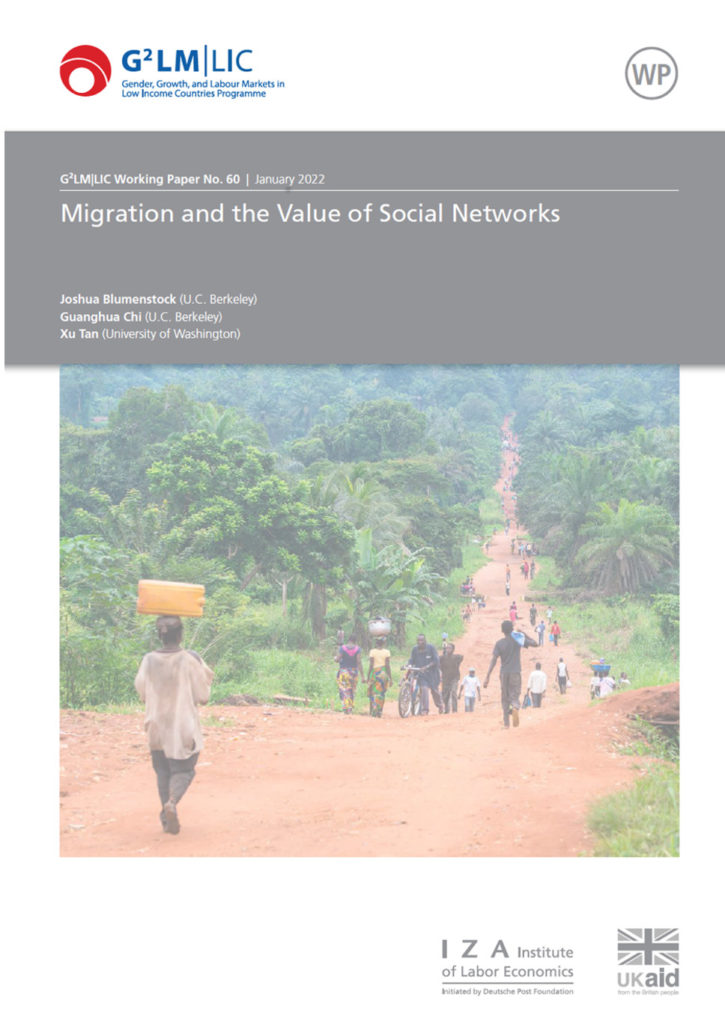
The connection between Migration and Social Networks has long been a topic of investigation within the field of Economics. Two distinct mechanisms by which Social Networks affect Migration the literature has investigated the most, are for once, when Networks function as conduits of information and hence facilitate migration, and secondly, when these work as a source of social and economic support. Although logically and individually clear, it has been hard to disentangle what effect dominates and how migration affects these or otherwise.
Approaching this issue, researchers set themselves to investigate what migration traits and stylized facts are seen when a rich and massive dataset of mobile phone activity across 5 years in Rwanda is analysed. This dataset enables researchers to track the location and calls of roughly one million mobile phone users across the country, and thus permits to track migration, migration duration and social networks by establishing the latter through recurrent communication among users. Out of the data, researchers find that the average migrant derives more social capital from interconnected networks that provide social support than from ‘extensive’ networks that efficiently transmit information. Read the detailed Working Paper here.